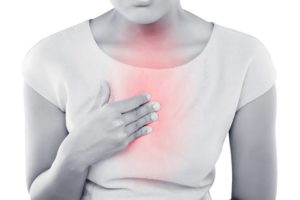I have chronic ulcer.
I recently had a very bad attack. I vomit immediately after eating with traces of blood. Also, whenever I visit the toilet, it’s poop accompanied with blood.
My doctor placed me on sivoclarithromycin,flagyl and Omeprazole which I have been taking religiously. I haven’t been missing my meals but the bleading with poop haven’t stopped.
Am getting scared.
Please what do I do?


Has this guy done endoscopy to be sure he has ulcer? Also did he underwent H.pylori test to warrant the use of antibiotics( triple therapy)?
From what I came up with
This condition could either be caused by rectal ulcer or ulcerative colitis.
*Rectal Ulcer* – It could be as a result of dietary changes ie if you have low fibre intake which results in constipation.
OR
*Ulcerative colitis*- One possible cause of this is allergic reaction of the medication ( adverse effect).
Prolonged use of Omeprazole especially one with high does may cause Clostridium Difficle Associated Diarrhea (CDAD) which damages lining of the intestinal wall causing diarrhea possibly with bleeding.
The antibiotics used also which is clarithromycin as has an adverse effect which is Pseudomembranous colitis ie inflammation of the colon caused by bacteria Clostridium . It results from disruption of normal healthy bacteria in the colon as a result of antibiotics and can cause severe damage of the colon.
If it is H.pylori induced and he has used the triple therapy then an mcs needs to be done to know the actual antibiotic that is sensitive to the isolated strain of bacteria.
If all that has been done and he is still bleeding or if it is not H.pylori induced and he is still bleeding then a surgical intervention had to be done to repair the stomach damaged by the ulcer. This can be thru laparoscopy or endoscopic procedure
This is gastric ulcers, which affect the small intestine and the stomach
severe cases, symptoms can include:
Dark or black stool
Vomiting blood or material that can look like coffee grounds
Weight loss
Severe pain in your belly
Prevention of stomach ulcer
Avoid foods that irritate your stomach. Use common sense: If it upsets your stomach when you eat it, avoid it. Everyone is different, but spicy foods, citrus fruits, and fatty foods are common irritants
Stop smoking. Heavy smokers are more likely to develop duodenal ulcers than nonsmokers
Practice moderation. Heavy consumption of alcohol and has been shown to contribute to the development of ulcers, so keep your intake to a minimum
Take nonsteroidal anti-inflammatory drugs (NSAIDS including aspirin and ibuprofen) with food, as this may decrease your risk of irritating the lining of your stomach
Learn how to control your stress levels. Regular exercise and mind-body relaxation techniques (such as guided imagery and yoga or tai chi) are often helpful.